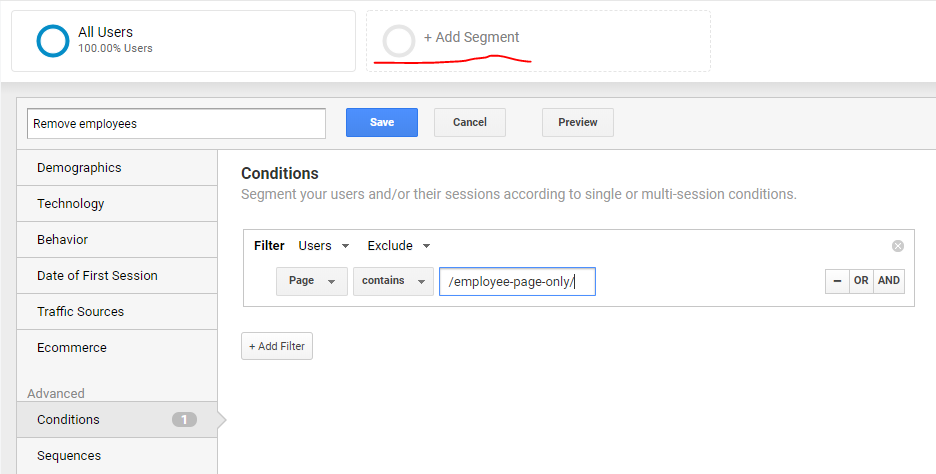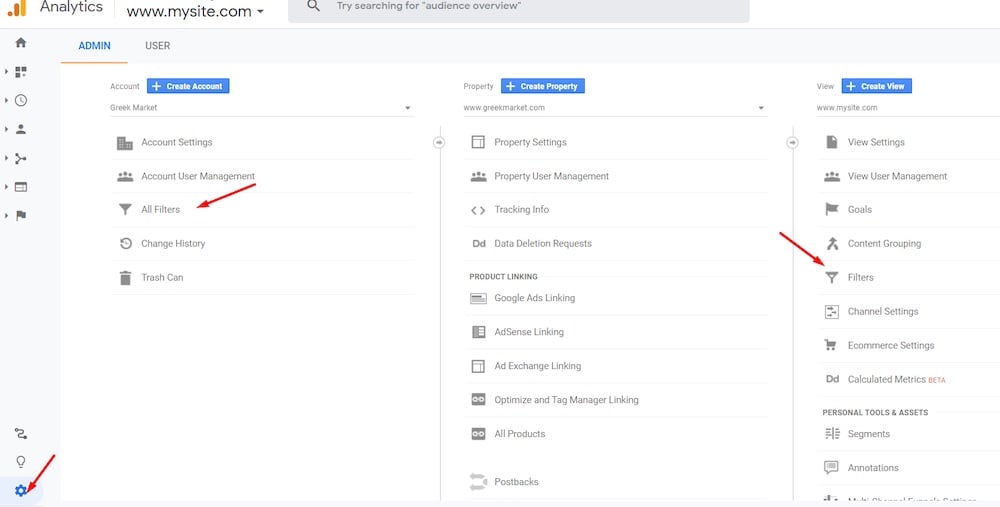The Best Strategy To Use For In Which Order Does Google Analytics Filter Data
Wiki Article
Top Guidelines Of In Which Order Does Google Analytics Filter Data
Table of ContentsIn Which Order Does Google Analytics Filter Data Can Be Fun For EveryoneThe Best Guide To In Which Order Does Google Analytics Filter DataIn Which Order Does Google Analytics Filter Data - QuestionsRumored Buzz on In Which Order Does Google Analytics Filter Data
g. usage comparison operators on dimensions) after that you must specify the worth as JSON. Problems that let you restrict the set of sessions or customers your query applies to. Sections can be defined in a couple of styles: For instance, any one of the following stand values for the sectors parameter.If you require to do sophisticated division (e. g. usage contrast operators on dimensions) then you should specify the value as JSON. For reports that you expect to return thousands or millions or results, it's advisable to set a limitation.
Note, you must have modify authorizations on the spreadsheet to use this attribute. This choice is beneficial if experimenting with a new record as well as you don't desire to run all your records up until you're finished.

In Which Order Does Google Analytics Filter Data Things To Know Before You Buy
See to it not to perplex this with the term "Google Account": One can contain approximately 25 Google Analytics accounts (take a look at this article if you reach this restriction yet dream to have more than 25 accounts). Please note that in some places Google makes use of the term as opposed to, however as for I can tell, both terms stand for the exact same entity and I will make use of the term throughout this article.
You can solve the overall data tasting problem by creating subsets of your information utilizing views yet that only helps with standard records (In Which Order Does Google Analytics Filter Data). Considering that session tasting is done on the residential or commercial property level, developing multiple views will not avoid data sampling when applying sophisticated sections or developing tailored records. You can locate even more details concerning information tasting below
From my previous experience, Google does refine greater than this quantity, yet I'm uncertain if it refines every one of the information, or simply greater than this specified limitation. If you have her explanation more than 200,000 sees a day, Google refines the information daily which might result in a delay of two days in your data refreshness.

The Best Strategy To Use For In Which Order Does Google Analytics Filter Data
g., one for the main site, one for the blog site, as well as one for the assistance site), after that you will not have the ability to tell the number of customers in total seen your brand name's buildings (as the individual that visited the primary Full Article site and after that the blog will certainly be counted twice instead of simply once).Or else, think what their general bounce price would be, or their conversion price from visits to enrollment, if their blog site was defined as component of their main site residential or commercial property. As soon as I've determined to separate the web site right into a number of residential or commercial properties, I such as to begin at the end as well as job backwards, initial analyzing each area and also making a decision which of them should have a separate building.
As each web building is, in many situations, targeted at a various target market type (with different habits), it makes good sense to divide the main site from the solution site, equally as this link it makes sense to separate the blog, the support site, as well as the touchdown pages. My general rule is to separate a site right into residential properties based upon the characters that will certainly be making use of the website.

In Which Order Does Google Analytics Filter Data Things To Know Before You Get This
You get the picture. If KISSmetrics just had one residential property, with lots of more blog site visitors than paying customers, their total logical metrics would be inaccurately affected by the blog viewers. There are two choices that can be utilized instead of numerous residential properties: Google Analytics enables you to sector the data (using innovative segmentation) or you can divide the sectors into separated views.Be careful, nonetheless, if you select either of these approaches, as I will certainly currently describe. The sophisticated segmentation attribute is considered much less effective for lengthy term division purposes. It is a wonderful method to run impromptu queries, however if your SEO manager wants one particular section, she will certainly have to re-choose this section each time she looks at the data.
Report this wiki page